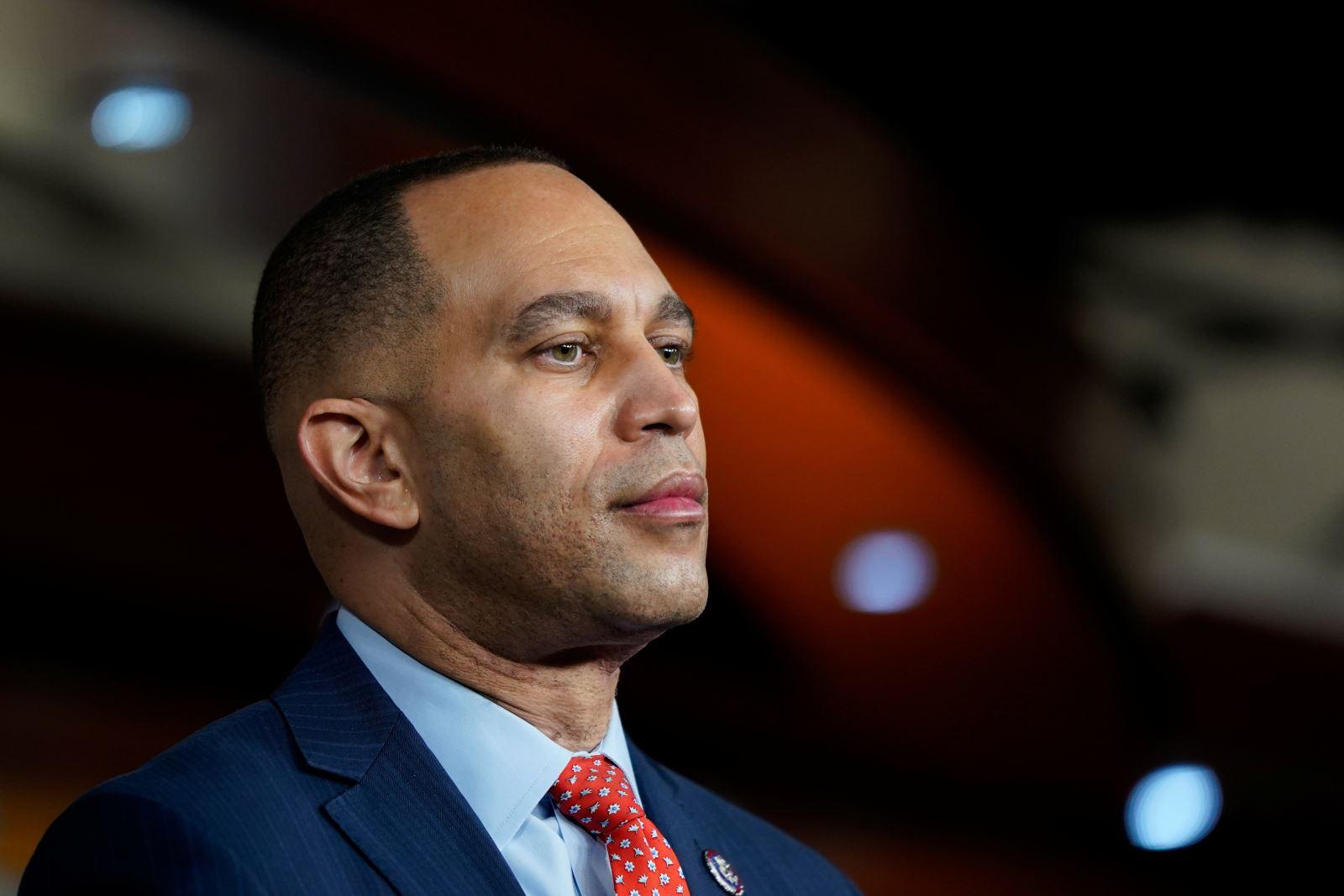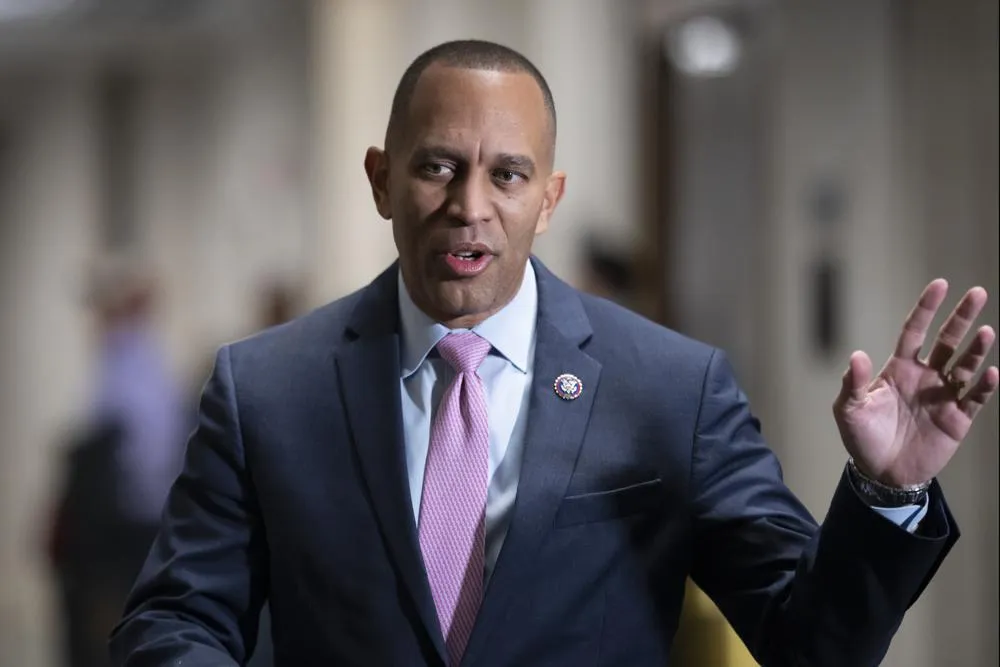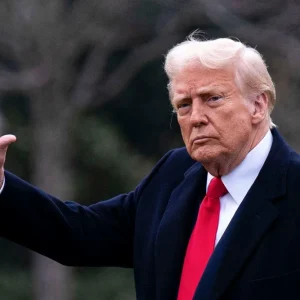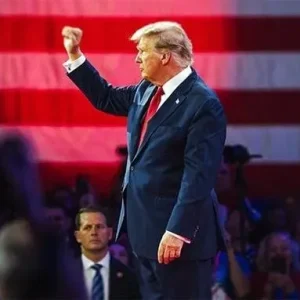In today’s hyper-partisan political environment, accusations of corruption are often wielded as weapons rather than conclusions drawn from concrete evidence. One such figure now under the spotlight is Hakeem Jeffries, the House Democratic Leader and a rising star in American politics. As he assumes a prominent role within the Democratic Party, some critics label him “just another corrupt Democrat,” suggesting he embodies the same alleged ethical failings attributed to others in his party. But how valid is this claim?

To evaluate such an accusation fairly, we must begin by defining what corruption means in this context. Political corruption typically involves the abuse of power for personal or political gain—ranging from financial misconduct and influence-peddling to unethical decision-making. It is one thing to oppose a leader’s political ideology or policy choices; it is quite another to accuse them of unethical or criminal behavior without substantiated evidence.
Hakeem Jeffries, a congressman from New York, has quickly risen through the Democratic ranks due to his articulate advocacy, party loyalty, and strategic acumen. Unlike some political veterans, Jeffries has not faced any formal ethics investigations, indictments, or proven scandals related to corruption. There is no known record of financial misconduct, bribes, or abuse of office. So why the label?
The idea that Jeffries is “just another corrupt Democrat” likely stems more from partisan frustration than from factual misdeeds. In an era where trust in institutions is low and political cynicism is high, it has become common to paint all politicians with the same brush—especially those affiliated with the opposing party. For conservative commentators and critics, Jeffries represents the continuation of Democratic leadership that they argue prioritizes political gain over the public interest. That narrative, while emotionally potent, does not by itself serve as proof of corruption.

Jeffries’ support for key Democratic priorities—such as expanding voting rights, protecting access to abortion, and addressing systemic racism—has placed him at odds with many on the right. For some, this ideological opposition morphs into moral condemnation. If one disagrees deeply with the policies or worldview of a political figure, it becomes easier to view them as corrupt, even absent direct evidence.
Moreover, Jeffries has taken strong stances against former President Donald Trump and right-wing extremism, which has made him a frequent target of conservative media. Accusations of corruption are sometimes used less to expose wrongdoing and more to delegitimize or discredit political opponents. This tactic isn’t exclusive to one party—it’s become an unfortunate staple of modern political discourse.
Still, being in a position of power comes with legitimate scrutiny. Jeffries has accepted campaign donations from corporate political action committees and various interest groups, which critics argue compromises his ability to act independently. While this is a widespread practice across both major parties, it raises ongoing concerns about the influence of money in politics. That said, legal campaign contributions do not equate to corruption, though they do reflect a system that many Americans believe is fundamentally flawed.
Critics may also point to Jeffries’ alignment with establishment Democrats and question whether he represents genuine change or simply a younger face for the status quo. But being part of the political establishment, or operating within party structures, is not inherently corrupt. It is worth distinguishing between structural critique and personal ethical failure.
To date, there is little to suggest that Hakeem Jeffries has engaged in any behavior that meets the traditional or legal definitions of corruption. His public record includes efforts to improve transparency, reform policing, and expand civil liberties. He has also been vocal in opposing policies that benefit the wealthy at the expense of working Americans, which undermines the argument that he is solely driven by corporate interests.
This does not mean Jeffries—or any politician—should be above criticism. Healthy skepticism is a vital part of democracy. The American political system functions best when leaders are held accountable, transparency is enforced, and public trust is earned, not assumed. But accusations, especially those as serious as corruption, should be grounded in evidence, not ideology.
In reality, the phrase “just another corrupt Democrat” is often less about Jeffries himself and more about the deep political divide in the country. For those frustrated with government inefficiency, partisanship, or economic inequality, such labels serve as a shorthand for a broader sense of betrayal. However, conflating systemic issues with personal misconduct risks obscuring the truth and weakening the standards by which we judge our public officials.
In conclusion, while it is reasonable to scrutinize Hakeem Jeffries as he steps into a more influential role within the Democratic Party, calling him “just another corrupt Democrat” is a claim that lacks substantive backing. Until credible evidence suggests otherwise, such accusations should be viewed through a lens of caution and critical thinking. In a time when political rhetoric is often louder than facts, maintaining fairness and intellectual honesty is not only responsible—it’s necessary.






